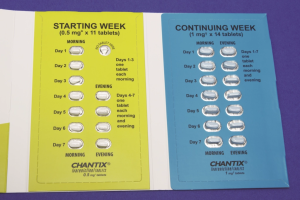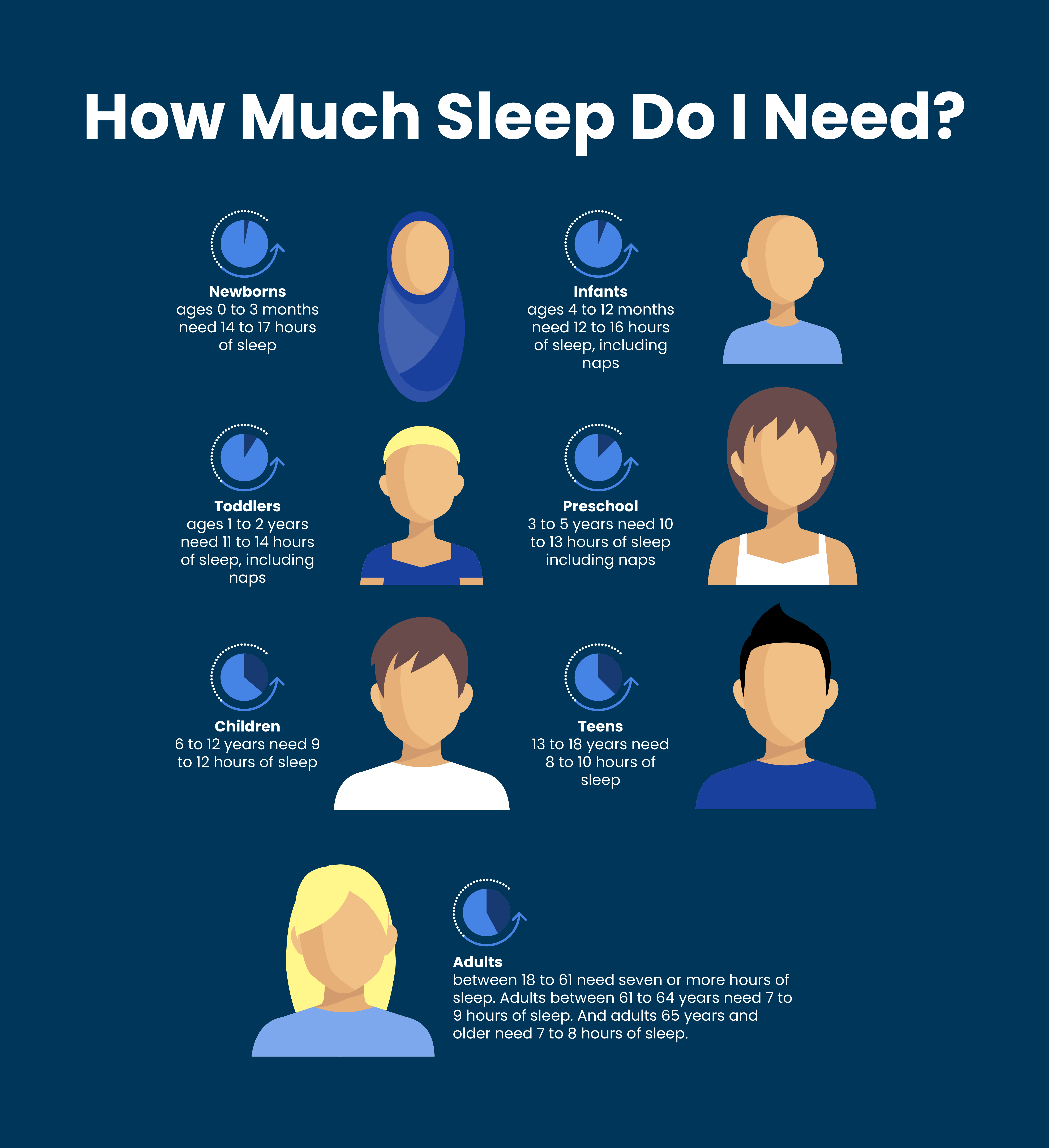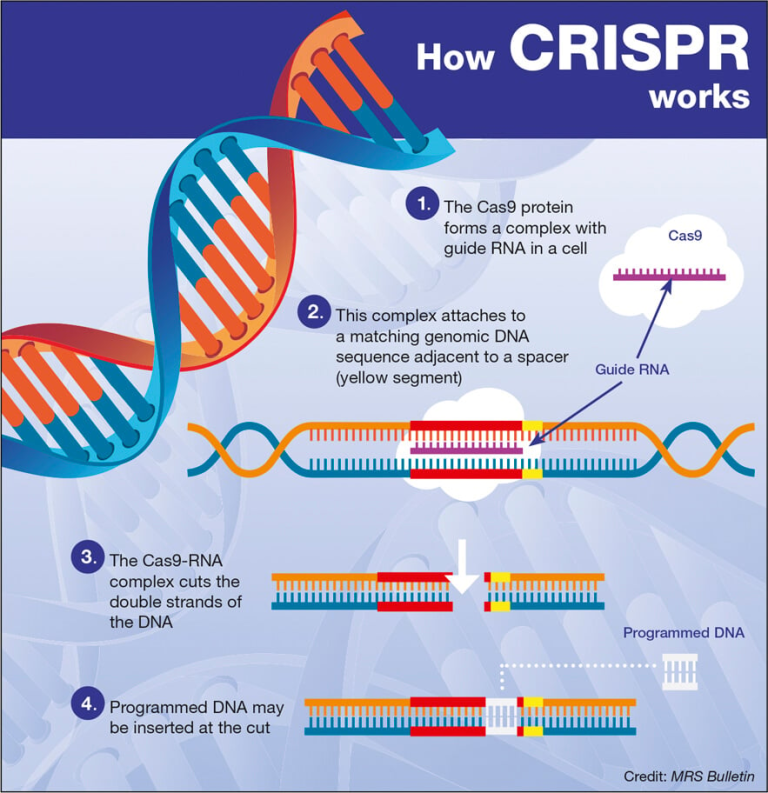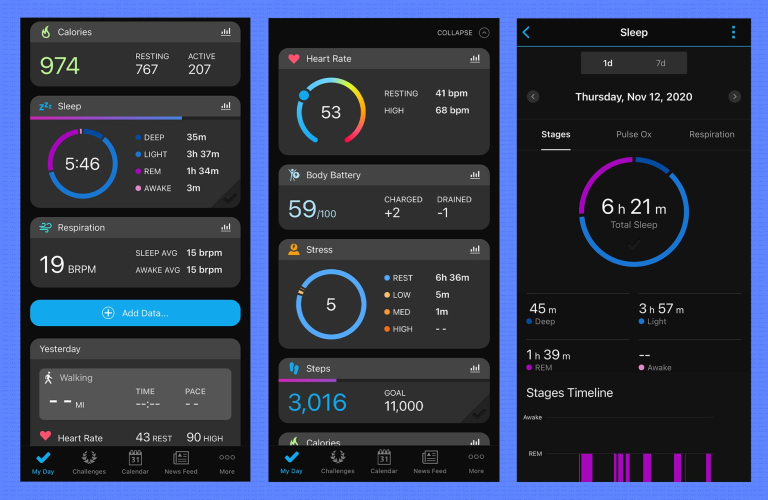How much sleep do you need? This pivotal question highlights the essential role of sleep duration in our daily lives and underscores each person’s unique sleep needs. While most adults are encouraged to aim for seven to nine hours of restful slumber per night, individual requirements can vary significantly based on factors such as age, lifestyle, and overall health. If you consistently wake up feeling tired, even after a full night’s sleep, it may be a signal of a sleep disorder, and professional advice could be invaluable. Mastering sleep hygiene and incorporating tips for better sleep can help enhance your nightly rest and overall well-being.
Understanding the right amount of rejuvenating slumber you require is crucial for optimizing your health and daily performance. This involves recognizing your personal sleep patterns, which might include signs of excessive daytime fatigue or disrupted sleep cycles that could signal underlying issues. Sleep quality and quantity greatly affect our mood, cognitive abilities, and physical health. By exploring alternative techniques for improving your nighttime routine, you can address potential sleep disorders and enhance your overall sleep hygiene. In this exploration, we will delve into various methods and strategies to achieve the restful night’s sleep that your body truly deserves.
Understanding Your Sleep Needs: How Much Sleep Do You Need?
Determining how much sleep you need is a highly individual process. Generally, the consensus is that adults require about 7 to 9 hours of sleep per night to function at their best. However, factors such as age, lifestyle, and overall health can influence your specific sleep requirements. One effective way to gauge your sleep needs is to observe how long you sleep naturally when you’re not restricted by alarms or busy schedules. This observation can help illuminate your body’s natural rhythm and its sleep duration preferences.
In childhood, sleep patterns are often established through routines that signal to the body when it’s time to wind down. Thanks to these established rituals, children are generally able to signal their sleep needs effectively. Adults, however, may struggle with these signals due to busy lifestyles and external pressures. Therefore, if after several nights of adequate sleep you still feel fatigued, it’s vital to seek professional advice. Conditions like sleep apnea or chronic insomnia can affect your overall sleep quality, highlighting the importance of understanding your personal sleep needs.
Tips for Better Sleep: Enhancing Sleep Hygiene
Maintaining good sleep hygiene is crucial for achieving restful sleep and meeting your sleep needs. Sleep hygiene encompasses practices that help you get a quality night’s sleep, such as establishing a consistent sleep schedule, creating a relaxing bedtime routine, and ensuring your sleep environment is conducive to rest. For instance, keeping your bedroom dark, quiet, and cool can enhance your ability to drift off. Additionally, it’s wise to avoid stimulating activities before bed, such as consuming caffeine or engaging with screens, which can disrupt your natural sleep cycle.
Another key aspect of sleep hygiene is being mindful of food and drink consumption close to bedtime. Heavy meals can lead to discomfort that hinders your ability to fall asleep. Additionally, while naps can be beneficial, particularly for those with irregular work hours, it’s essential to limit their duration to avoid disrupting your nighttime sleep. Incorporating calming activities such as meditation or reading before bed can signal your body that it’s time to unwind, improving your overall sleep quality.
Identifying Sleep Disorders: Symptoms and Solutions
It’s essential to recognize the symptoms of sleep disorders, as unresolved issues can severely affect both your physical and mental health. Common sleep disorders include insomnia, sleep apnea, and narcolepsy, each presenting unique challenges. For instance, insomnia may manifest as difficulty falling or staying asleep while sleep apnea might involve interruptions in breathing during sleep, leading to excessive daytime fatigue. If you regularly wake up feeling exhausted, even after a full night of sleep, it might be time to consult a sleep specialist.
Treatment options vary based on the specific disorder diagnosed. For many, addressing underlying issues with cognitive behavioral therapy can offer a more sustainable solution than reliance on medications, which can sometimes carry unwanted side effects. Additionally, lifestyle modifications, such as improving sleep hygiene and optimizing your environment for sleep, are beneficial. Communicating with your healthcare provider and undergoing diagnostic testing can lead to effective management of these conditions.
The Role of Naps in Sleep Patterns
Napping can be a powerful tool for mitigating the impact of sleep deficits, particularly for those working non-traditional hours or facing sleep challenges. Short naps of around 20-30 minutes can enhance alertness and cognitive performance without leading to sleep inertia, the grogginess that sometimes follows longer sleep periods. However, the timing and duration of naps are crucial; taking a nap too late in the day can disrupt nighttime sleep patterns and exacerbate sleep problems.
To maximize the benefits of napping, it’s vital to approach this practice strategically. For instance, power naps earlier in the afternoon are ideal for recharging energy levels without interfering with the evening sleep routine. Additionally, listen to your body—if you frequently feel the need for naps, it may signal that your overall sleep needs are not being met during the night, and adjustments to your nighttime sleep schedule should be considered.
Creating a Sleep-Inducing Environment
A well-curated sleep environment is fundamental to achieving restful, restorative sleep. Your bedroom should be a sanctuary, free from distractions such as bright lights and noise. Consider employing blackout curtains to block out any external light and using earplugs or white noise machines to drown out disturbing sounds. Maintaining a cool, comfortable temperature can also significantly impact sleep quality, as most individuals sleep best in a slightly cooler environment.
Personal preferences can shape your sleep environment as well; for some, weighted blankets may provide a sense of security that promotes relaxation. On the other hand, ensuring that your mattress and pillows support your preferred sleeping position can also enhance comfort. By customizing your sleep space to match your needs, you can foster an ideal atmosphere for rest and recovery.
The Importance of Establishing a Bedtime Routine
Establishing a consistent bedtime routine can signal your body that it’s time to focus on winding down, playing a significant role in how well you sleep. Engaging in calming activities like reading a book, taking a warm bath, or practicing relaxation techniques can help reduce stress and prepare your mind and body for sleep. By doing this regularly, you train your body to recognize these signals as precursors to falling asleep.
Moreover, a bedtime routine can reinforce the importance of sleep hygiene by promoting a predictable transition to sleep. Engaging in stimulating activities, such as screen time or vigorous exercise, right before bed can interfere with your body’s preparedness for sleep. Instead, prioritize activities that help you unwind and de-stress, creating a more peaceful and restorative nighttime experience.
Effective Sleep Supplements: What You Should Know
While numerous supplements claim to promote better sleep, it’s essential to be discerning when considering these options. Melatonin, a naturally occurring hormone in the body, can indeed help regulate sleep cycles, but its regulation varies widely, and not all supplements are created equal. It’s advisable to choose pharmaceutical-grade melatonin if you do opt for this route, as it ensures the quality and potency of the product.
However, relying on sleep supplements should not be a long-term strategy. Many experts recommend focusing on behavioral strategies and lifestyle changes to address sleep issues. For those facing ongoing sleep disturbances, consulting with a healthcare professional can help identify the root causes and determine the most effective treatment approach, which may not solely rely on supplementation.
How Light Exposure Affects Sleep Patterns
Light exposure plays a crucial role in regulating our sleep-wake cycles, impacting our ability to fall asleep and awaken refreshed. Natural light exposure during the day promotes daytime alertness and sharpens the body’s natural rhythms, fostering better sleep quality at night. Conversely, excessive exposure to artificial light, particularly from screens, can disrupt melatonin production and interfere with the body’s ability to recognize when it’s time to sleep.
To leverage light exposure for better sleep, it’s beneficial to maximize daylight exposure during waking hours. In the evening, minimizing exposure to bright and blue lights can help prepare your body for restful sleep. Consider dimming the lights as bedtime approaches, and perhaps utilizing blue light filters on your devices. Such adjustments create a conducive environment for quality sleep and ultimately enhance overall health and wellbeing.
The Benefits of Sleep Podcasts and Sound Machines
In recent years, sleep podcasts and sound machines have gained popularity as tools for enhancing sleep quality. These auditory aids can create a calming atmosphere that promotes relaxation and signals the brain that it’s time to wind down. Whether it’s the soothing sound of nature, gentle music, or guided meditation, the right audio experience can help establish a routine that facilitates better sleep hygiene.
However, while sleep podcasts and sound machines can be effective for many, it’s crucial to ensure they don’t lead to dependency. Setting a timer for these devices can prevent prolonged exposure that might disrupt sleep. Additionally, maintaining flexibility in your nightly routine can help you adapt when traveling or facing interruptions in your typical environment, allowing for continued good sleep practices.
Frequently Asked Questions
How much sleep do you need to function at your best?
The amount of sleep you need varies by individual, but generally, adults require between 7 to 9 hours of sleep per night. To determine your optimal sleep duration, spend a few nights without an alarm clock and see how much sleep you naturally accumulate. This will help you identify your unique sleep needs.
What are some tips for better sleep to meet your sleep duration needs?
To ensure you meet your sleep duration requirements, practice good sleep hygiene. Establish a consistent sleep schedule, create a relaxing bedtime routine, and keep your sleep environment comfortable and dark. Avoid screens before bed and limit caffeine in the afternoon.
How can sleep disorders affect your sleep needs?
Sleep disorders can significantly impact your sleep duration and overall sleep quality. Conditions like sleep apnea, narcolepsy, and insomnia may prevent you from achieving the restorative sleep you need. If you often awaken tired despite adequate sleep hours, consider consulting a sleep specialist.
What role does sleep hygiene play in determining how much sleep do you need?
Sleep hygiene plays a crucial role in helping you meet your sleep duration needs. Good practices, like maintaining a quiet, dark sleeping environment and engaging in calming pre-sleep activities, can help signal your body that it’s time to wind down, ensuring you get the restorative sleep you require.
Can children and adults have different sleep needs?
Yes, sleep needs vary significantly between children and adults. Children generally require more sleep than adults, often needing between 9 to 11 hours, depending on their age. Understanding how much sleep your child needs can help promote healthy sleep habits as they grow.
How does the concept of sleep duration change with age?
As we age, our sleep duration and sleep architecture can change. Seniors may find they need slightly less sleep, averaging about 7 to 8 hours, but can experience more fragmented sleep patterns. Ensuring adequate sleep hygiene is essential for older adults to meet their sleep needs.
What should you do if you consistently wake up tired despite getting enough sleep?
If you consistently wake up feeling tired even after several nights of adequate sleep hours, it may indicate an underlying sleep disorder. Consult a sleep specialist to evaluate any potential issues like sleep apnea or restless leg syndrome that could be impacting your sleep quality.
How effective are sleep aids in meeting your sleep duration?
While some people benefit from sleep aids in achieving their sleep duration targets, relying on medications is not recommended for long-term use. Instead, consider behavioral therapies or natural approaches, as these can help improve your overall sleep quality and hygiene, leading to better rest.
What are the consequences of not meeting your sleep needs?
Failing to meet your sleep needs can lead to various negative consequences, including impaired cognitive function, mood disturbances, and increased risk of chronic illnesses. Prioritizing effective strategies for better sleep hygiene can help ensure you obtain the necessary sleep duration for optimal health.
| Key Point | Details |
|---|---|
| Individual Variability | The amount of sleep needed varies from person to person; observe how much sleep accumulates over days without an alarm. |
| Awareness of Sleep Patterns | Your body needs cues for sleep; activities like reading can signal that it’s time to sleep. |
| Consult a Sleep Doctor | Persistent tiredness after adequate sleep may indicate sleep disorders; seek professional advice. |
| Napping | If struggling to sleep at night, taking naps can be beneficial, especially for shift workers. |
| Sleep Hygiene Practices | Engaging in calming activities before bed can help; avoid caffeine and stimulants. |
| Melatonin and Medication Caution | Melatonin isn’t FDA-regulated and should be pharmaceutical-grade if taken; avoid long-term use of conventional sleeping pills. |
| Calming Sounds | Sound machines and sleep podcasts can be helpful if they don’t disrupt sleep; ensure safety. |
Summary
How much sleep do you need? The answer is that it varies from person to person, and recognizing your own patterns is crucial. Aim to pay attention to your body’s signals and ensure a routine that promotes restful sleep. If you find yourself consistently tired, it may be time to consult a sleep specialist. Ultimately, understanding how much sleep you need involves a combination of self-awareness, sleep hygiene, and, if necessary, professional guidance.









